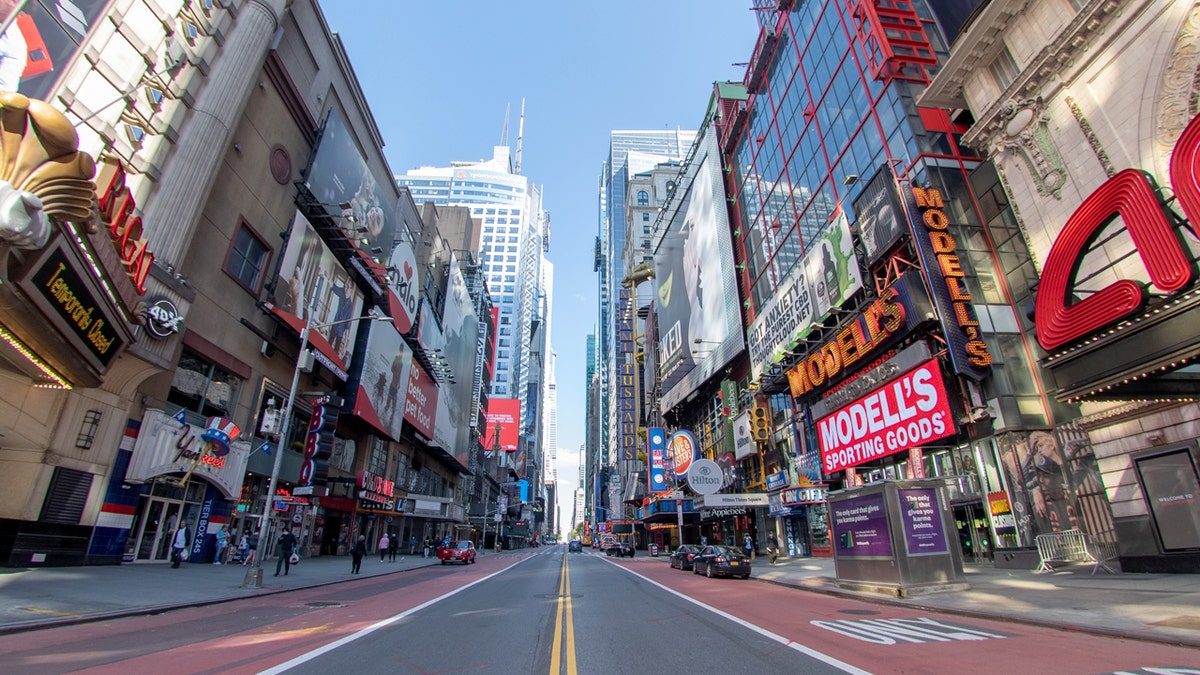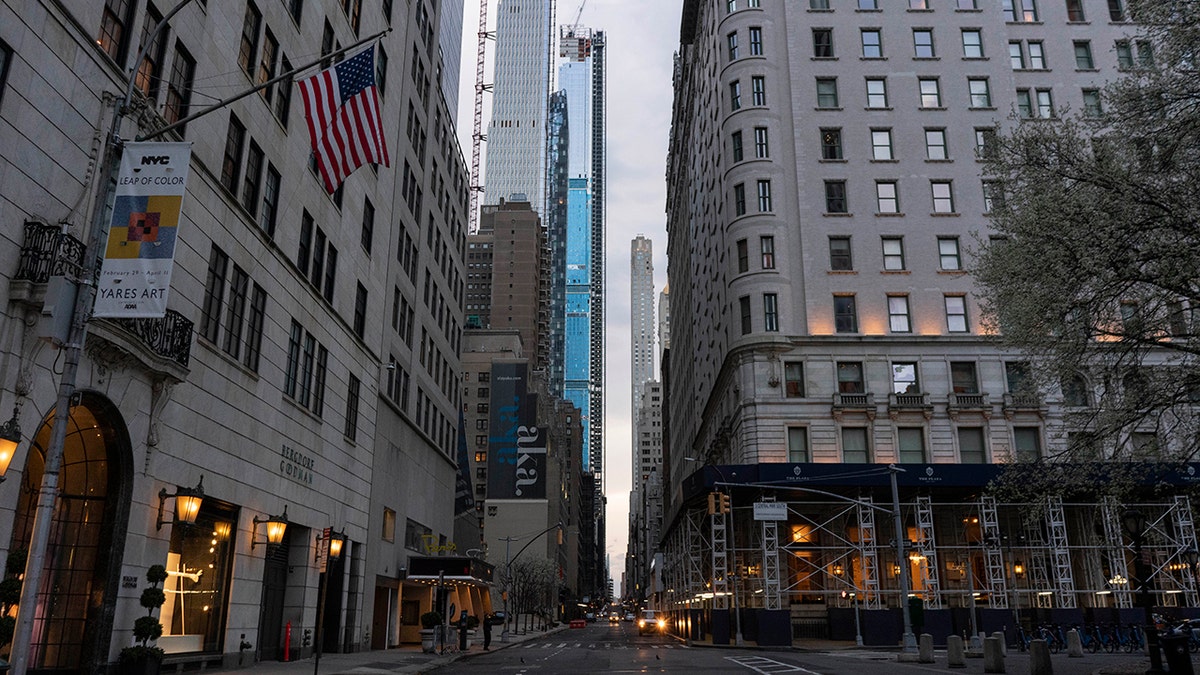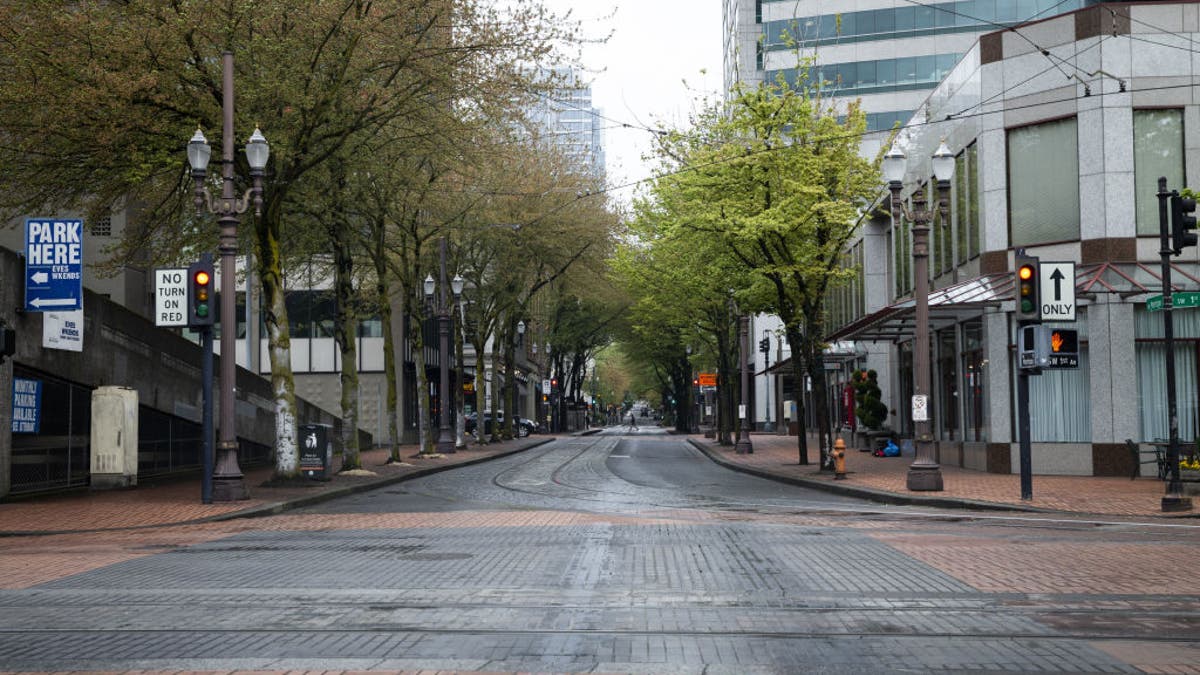'The Five': CEOs are running out of patience on remote work
‘The Five’ co-hosts discuss how Amazon and Goldman Sachs CEOs are pushing back on remote work.
A new study using existing trends from over the past 20 years predicted population decline in thousands of American cities over the next 80 years.
Researchers at the University of Illinois Chicago used population projections to find that, by the year 2100, almost half of nearly 30,000 cities in the U.S. will experience a population decline.
The population decline would represent 12%–23% of the population of these cities, the study states. The aftermath of such a decline will bring "unprecedented challenges," the study explains further.
These cities could face a loss in basic services like transit, clean water, electricity and internet access. Furthermore, an issue depopulation poses is a "dwindling tax base" that would certainly impact basic city services.

The view looking east along an empty 42nd street in Times Square in New York City amid the coronavirus pandemic on May 7, 2020. (Alexi Rosenfeld/Getty Images)
"Simultaneously, increasing population trends in resource-intensive suburban and periurban cities will probably take away access to much needed resources in depopulating areas, further exacerbating their challenges," the report states.
It went on to say, "Although immigration could play a vital role, resource distribution challenges will persist unless a paradigm shift happens away from growth-based planning alone."
The study found that urban cities with lower median household income in the Northeast and Midwest would more than likely experience depopulation over time than the West and Southern regions in the U.S. The study's authors predicted Hawaii and the District of Columbia would experience no loss of people at all.

The 5th Avenue area appears completely empty in March 2020 after New York City announced the closure of all non-essential businesses and implemented a lockdown order. (Erin Lefevre/NurPhoto via Getty Images)
CORONAVIRUS MAY EXPAND REMOTE WORK ACROSS MANY INDUSTRIES, ANALYSTS SAY
While depopulation is occurring in many small cities across the country, the phenomenon is happening in major "metropolitan centers" like Detroit, Cleveland and St Louis, which are "moderate to slow." While these cities experience depopulation, their surrounding "suburban and periurban cities" are attracting residents.
The same trend is happening in southern metropolitan centers like Columbus, Georgia.; Birmingham, Alabama; and Memphis, Tennessee.

Empty streets are seen in downtown Portland, Oregon, on April 22, 2020. (Moriah Ratner/Bloomberg via Getty Images)
CLICK HERE TO GET THE FOX NEWS APP
On the other hand, blue states like California and New York saw an exodus of residents to the Southern red states post-COVID-19 pandemic. The phenomenon, called "Sun Belt migration," was driven by high costs of living and steep taxes, FOX Business previously reported.
Fox Business' Megan Henney contributed to this report.











































